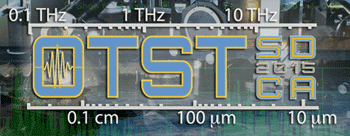
Lake Shore Cryotronics will be discussing solutions for high-frequency material characterization at the Optical Terahertz Science & Technology (OTST) Conference, March 8 – 13, in San Diego.
Lake Shore will specifically discuss its turnkey Model 8501 THz system for material characterization and its work toward developing THz-frequency solutions for cryogenic probe station-based measurement.
A non-contact spectroscopic platform, the Model 8501 enables scientists to more easily study materials with resonances in the THz regime. It is the first affordable and fully integrated system specifically tailored for characterization of research-scale materials. Previously, THz characterization had been available only to well-funded institutions and to researchers skilled in the complexities of optical measurements.
Using the system requires no special optics knowledge. All of the alignment and calibrations of THz components have already been done. Additionally, the system features intuitive software for fast setup of measurement profiles, automating measurement runs and visualizing collected data in real time.
The Model 8501’s unique continuous wave THz (CW-THz) emitter and detector components support the ability to measure at 200 GHz to 1.5 THz frequencies and spectral resolution of better than 100 MHz. Because the system includes a variable-temperature flow cryostat and high-field superconducting magnet, THz transmission can be measured across a range of temperatures and field strengths. These capabilities benefit research of materials at an early stage, when exploring material responses while varying the environmental conditions may be required.
Also at the conference, Lake Shore will be discussing its efforts towards developing a THz-frequency, on-wafer contact probing solution for cryogenic probe stations. This initiative is a collaboration of Lake Shore with several companies and university researchers. The goal is to enable high-speed device probing and performance measurements at variable temperatures and magnetic fields for next-generation electronics R&D. To learn more about this industry/university collaboration, visit the Lake Shore booth.

